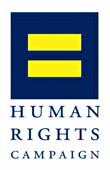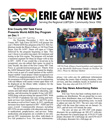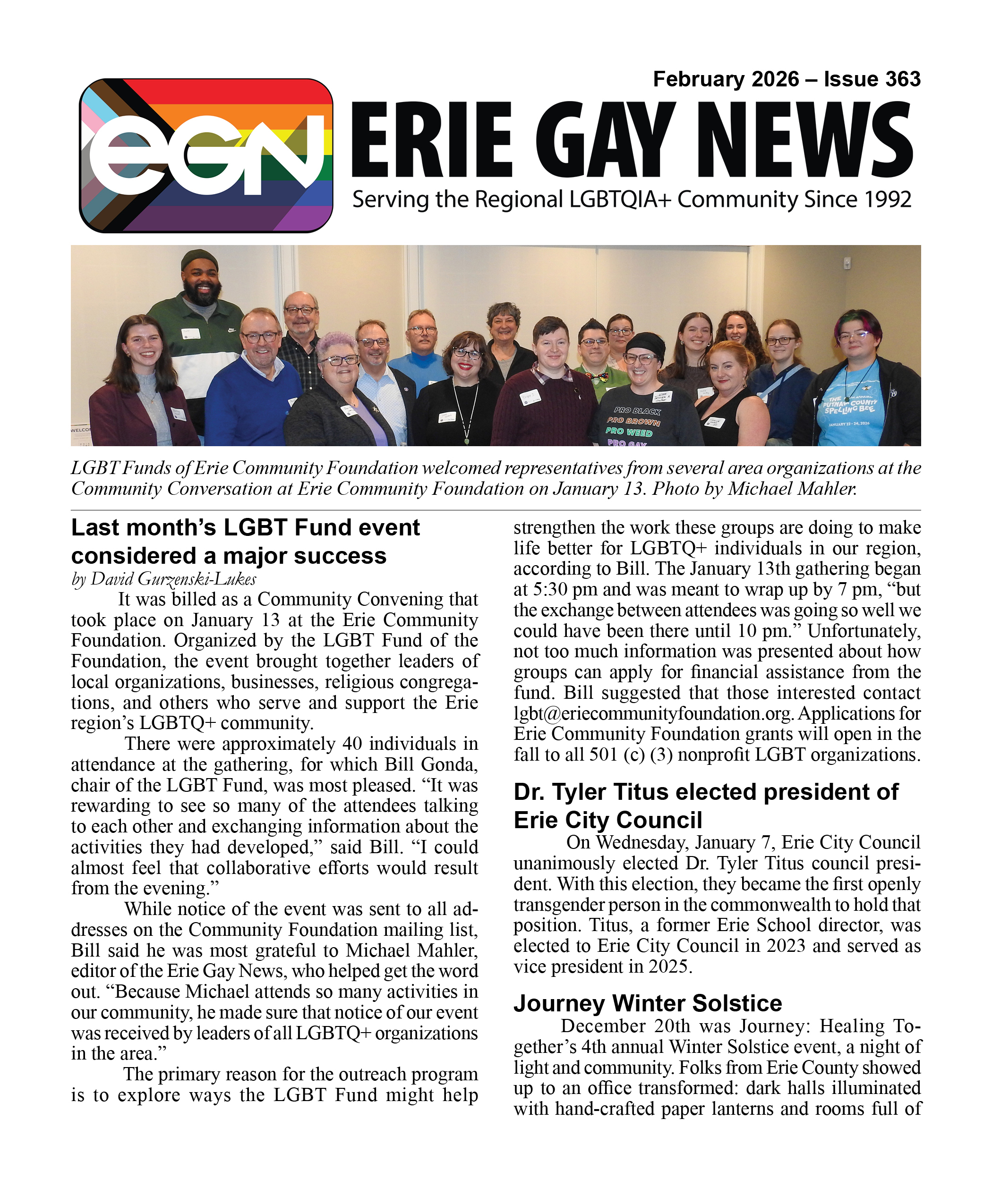Human Rights Campaign Foundation Marks Ten Years of Tracking Violence Against Transgender and Gender Non-Conforming People, Recording 32 Fatalities in 2022
As the Transgender Day of Remembrance (TDOR) approaches, 2022 has seen at least 32 transgender and gender non-conforming people violently killed across the country. HRC has now tracked more than 300 deaths since its first report in 2013.
WASHINGTON - November 16, 2022 -- Today, the Human Rights Campaign (HRC) Foundation, the educational arm of the Human Rights Campaign, the nation's largest lesbian, gay, bisexual, transgender and queer (LGBTQ+) civil rights organization, released "An Epidemic of Violence: Fatal Violence Against Transgender and Gender Non-Conforming People in the United States in 2022" a report honoring the lives of at least 32 transgender and gender non-conforming people killed in 2022 and shining a light on data that HRC has continued to collect on the epidemic of violence.
HRC has officially recorded at least 300 violent deaths of transgender and gender non-conforming people, including 32 in 2022 alone, since the organization began tracking this violence ten years ago. Overall, transgender and gender non-conforming victims of violence are overwhelmingly Black, under 35, and killed with a firearm. The highest known single-year total of fatal deaths of transgender and gender non-conforming people was in 2021, when at least 57 trans & gender non-conforming people were violently killed. Worse, these disturbing numbers likely underreport the deadly violence targeting transgender and gender non-confirming people, who may not be properly identified as transgender or gender non-conforming by police, media or other sources.
Since 2013:
- More than four in five (85%) victims tracked were people of color, including approximately 69% who were Black and 15% who were Latinx;
- Over three-quarters (77%) were under the age of 35;
- Two-thirds (69%) of deaths involved a firearm;
- 15 people were killed by police or while incarcerated in jails, prisons, or ICE detention centers, including 2 in 2022 alone;
- In 40% of cases, the killer remains unknown or at large, and no arrest has been made;
- Of those with a known killer, two-thirds (65%) were killed by a person they knew;
- Nearly one-fifth (19%) of those whose killer is known were killed by an intimate partner
- Nearly one-tenth (9.7%) were killed by a friend or family member
- Over one third (36%) were killed by an acquaintance
- Seven in ten (70%) of those killed were initially misgendered by the media and/or police.
This report comes amidst a shockingly large wave of anti-transgender legislation, driven by disinformation and stigma. Nationwide, more than two dozen anti-LGBTQ+ bills have been enacted out of more than 250 introduced, ranging from bans on transgender youth playing sports with their peers and using bathrooms and locker rooms in accordance with their gender identity, to cruel bans on doctors providing safe, legal, and medically necessary gender-affirming medical care. We have also seen an increase in bans on books discussing LGBTQ+ identities in schools, and "Don't Say Gay or Trans"-style laws restricting the discussion - and the existence -of LGBTQ+ people in schools. Each of these bills aims to restrict the areas of public life where transgender people can freely and openly participate.
"The Transgender Day of Remembrance is a solemn tradition, a moment where transgender and non-binary people can gather together to mourn those lost and hope for a better future," said Tori Cooper, Director of Community Engagement for HRC's Transgender Justice Initiative. "Ten years and over three hundred deaths that we know of is a grim milestone. I call on transgender people everywhere and our allies to respond to this dark moment by advocating anywhere and everywhere, to whomever will listen, in support of our lived & legal equality - and, most importantly, our lives. We will honor their lives and their memories with action."
"For ten years, we at HRC have tracked fatal violence against trans and gender non-conforming people, with the goal of memorializing their lives and uplifting their stories to bring this epidemic of violence to an end. Each and every one of the at least 300 people killed since 2013 was a person with a full, rich life that did not deserve to be cut short," said Shoshana Goldberg, Director of Public Education & Research for the Human Rights Campaign Foundation. "This year saw unprecedented amounts of negative rhetoric and stigma aimed by anti-equality political leaders and public figures at transgender and non-binary people, as well as their families, loved ones, and even their medical providers. You can't separate that from the horrific, ongoing violence against transgender people. We will fight for change. We must dismantle this stigma. Together, we can bring this epidemic of violence to an end."
The 32 known transgender and gender non-conforming people killed so far in 2022 are: Amariey Lej, Duval Princess, Cypress Ramos, Naomie Skinner, Matthew Angelo Spampinato, Paloma Vazquez, Tatiana Labelle, Kathryn "Katie" Newhouse, Kenyatta "Kesha" Webster, Miia Love Parker, Ariyanna Mitchell, Fern Feather, Ray Muscat, Nedra Sequence Morris, Chanelika Y'Ella Dior Hemingway, Sasha Mason, Brazil Johnson, Shawmaynè Giselle Marie, Kitty Monroe, Martasia Richmond, Keshia Chanel Geter, Cherry Bush, Marisela Castro, Hayden Davis, Kandii Redd, Aaron Lynch, Maddie Hofmann, Dede Ricks, Mya Allen, Acey Morrison, Semaj Billingslea, and Tiffany Banks. HRC also tracks additional concerning deaths of transgender and gender non-conforming individuals.
Many factors lead to this violence. Anti-transgender stigma leads to the denial of opportunities in society, such as employment discrimination and exclusion from health care, as well as to increased risk factors such as poverty and homelessness. The combination of these intersectional factors, which are often exacerbated by racism and sexism, can lead to an increased risk of fatal violence. Learn more in HRC's groundbreaking report, "Dismantling a Culture of Bias: Understanding Anti-Transgender Violence and Ending the Crisis."
From November 14-19, HRC commemorates Transgender Awareness Week, an annual event that is dedicated to illuminating both the progress and the unfinished work in the fight for transgender and non-binary equality. The week culminates in the Transgender Day of Remembrance, held every year on Nov. 20.
For more information on the Human Rights Campaign's work on transgender and non-binary equality, visit hrc.org/transgender.
The Human Rights Campaign Foundation is the educational arm of the Human Rights Campaign (HRC), America's largest civil rights organization working to achieve equality for lesbian, gay, bisexual, transgender and queer (LGBTQ+) people. Through its programs, the HRC Foundation seeks to make transformational change in the everyday lives of LGBTQ+ people, shedding light on inequity and deepening the public's understanding of LGBTQ+ issues, with a clear focus on advancing transgender and racial justice. Its work has transformed the landscape for more than 15 million workers, 11 million students, 1 million clients in the adoption and foster care system and so much more. The HRC Foundation provides direct consultation and technical assistance to institutions and communities, driving the advancement of inclusive policies and practices; it builds the capacity of future leaders and allies through fellowship and training programs; and, with the firm belief that we are stronger working together, it forges partnerships with advocates in the U.S. and around the globe to increase our impact and shape the future of our work.



